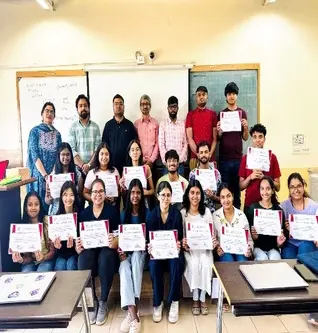
Workshop on Machine Learning and Bioinformatics at Biotechnology and Bioinformatics Area
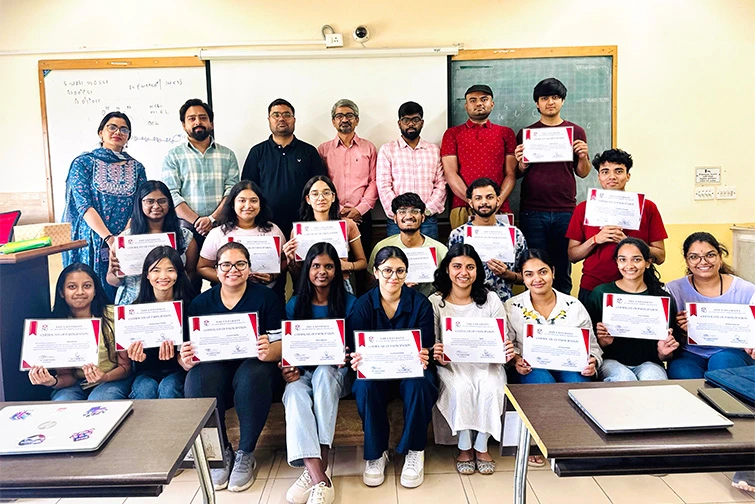
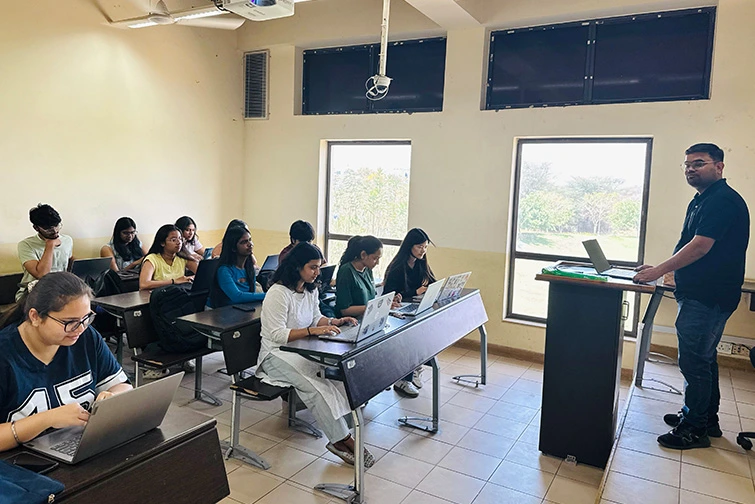
Date: April 21–22, 2025
Time: Daylong
Venue: CR 112 and BT Lab
The Biotechnology & Bioinformatics Area (Department) at NIIT University conducted an enriching two-day workshop titled “Machine Learning and Bioinformatics: Unlocking Insights from Gene Expression Data” on April 21–22, 2025. The workshop was curated and co-ordinated by Dr Utkarsh and Dr Sanjeev specifically for second and third-year BTech Biotechnology students with the goal of bridging the gap between biology and data science by providing hands-on training in modern computational tools and machine learning methods for biological data analysis.
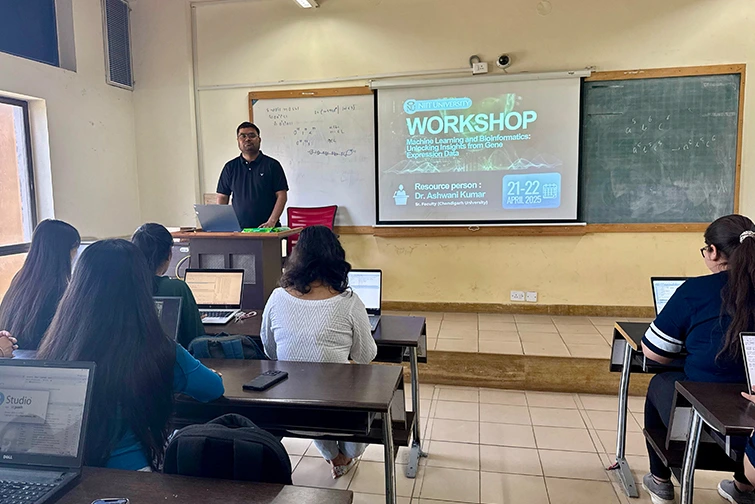
The workshop was graced by the esteemed Dr. Ashwani Kumar, Assistant Professor at Chandigarh University, who served as the resource person. With extensive academic and research experience from reputed institutions including CSIR-IHBT and Sir Ganga Ram Hospital, Dr. Kumar brought a wealth of practical knowledge and deep insights to the sessions.
Impact & Outcomes
The workshop served as a valuable platform for students to:
- Gain practical exposure to bioinformatics tools and machine learning algorithms.
- Understand real-world applications of gene expression data analysis.
- Interact with an expert from academia with diverse interdisciplinary experience.
- Enhance their preparedness for academic research and industry roles in biotech and data-driven life sciences.
Workshop Schedule & Highlights
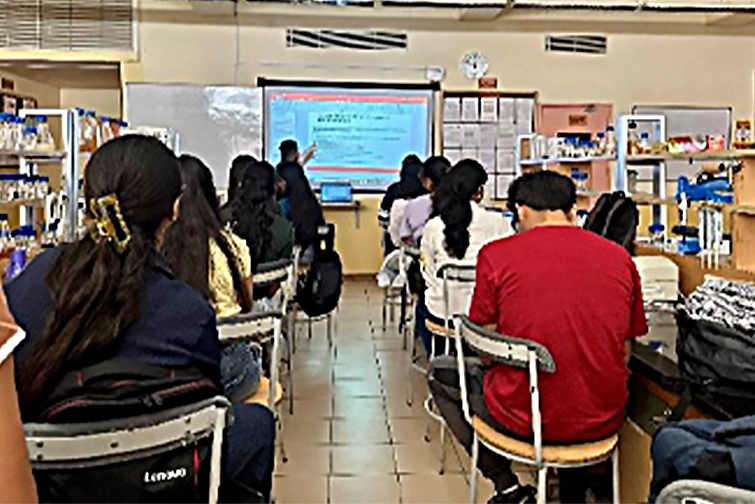
Day 1: Introduction to Bioinformatics and Gene Expression Analysis
- Session 1: Introduction to Bioinformatics & Cancer Genomics Provided a foundational understanding of bioinformatics, gene expression, and its applications in cancer research.
- Session 2:Data Collection & Preprocessing Included practical training on retrieving datasets from the GEO database, normalization, batch effect correction, and feature selection.
- Session 3: Differential Gene Expression Analysis Covered hands-on exercises using R and the ‘limma’ package to identify differentially expressed genes (DEGs), followed by visualization techniques such as volcano plots and heatmaps, and functional enrichment analysis (GO and KEGG pathways).
- Session 4: Gene Co-Expression & Network Analysis Introduced tools like CEMiTool for gene co-expression networks and STRING for protein-protein interactions. Focus was placed on identifying central genes and biomarker modules.
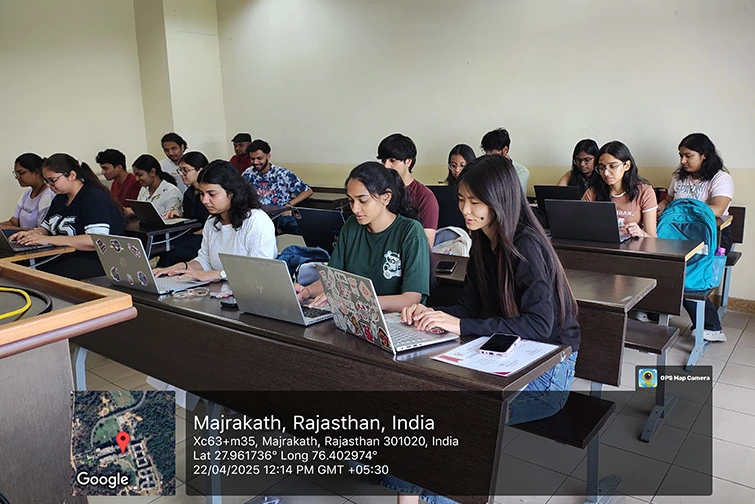
Day 2: Machine Learning for Biomarker Discovery and Validation
- Session 5: Introduction to Machine Learning in Bioinformatics Participants were introduced to classification algorithms including SVM, Random Forest, Artificial Neural Networks, and Gradient Boosting Machines.
- Session 6: Feature Selection Using LASSO Regression Demonstrated the implementation of LASSO logistic regression and techniques to evaluate model performance using AUROC and ROC curves.
- Session 7: Model Training & Validation Focused on training and validating ML models using metrics like accuracy, sensitivity, specificity, and F1-score with independent datasets.
- Session 8: Immune Cell Infiltration Analysis & Workshop Conclusion Explored the application of CIBERSORT for immune cell infiltration analysis. The session concluded with an interactive discussion and Q&A, reinforcing key concepts.

About Dr Ashwani Kumar
Dr. Ashwani Kumar is an accomplished academic and researcher currently serving as a Sr. Faculty at Chandigarh University since March 2022. With over three years of teaching experience, he brings a strong foundation in both academic instruction and applied research.
He previously worked as a Senior Project Associate for nearly three years at the CSIR-Institute of Himalayan Bioresource Technology (IHBT), where he contributed to cutting-edge research on Himalayan bioresources and their biotechnological applications. Following this, he served as a Research Associate at Sir Ganga Ram Hospital, engaging in clinical and translational research projects.
Earlier in his career, Dr. Kumar worked as an E-Tutor at Trivium, delivering online academic support in life sciences, and pursued his doctoral studies as a PhD Researcher at Jaypee University of Information Technology, specializing in biotechnology.
Dr. Kumar’s diverse experiences across academic, clinical, and research domains highlight his dedication to scientific inquiry and education.
